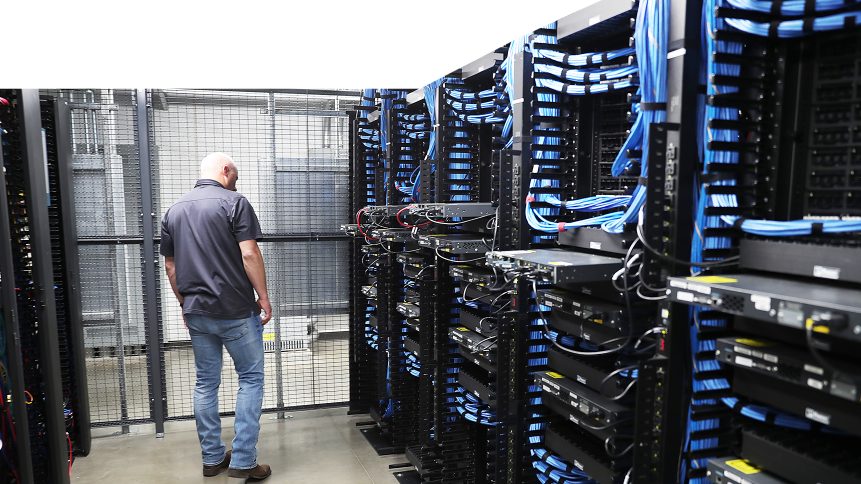Data center workers — the unsung ‘essential workforce’

“Clap for carers” has become a symbolic gesture of support for healthcare workers on the ‘frontline’ during the Covid-19 crisis, but also for the other essential workers keeping day-to-day services running.
From New York to London to Milan, citizens are open their front doors, hang out of windows or stand on balconies to applaud and bang pots and pans for those keeping supermarkets stocked, the delivery drivers, the refuse collectors – the people keeping the lights on and water running.
Our nightly 7pm #clapbecausewecare for Medical & Essential workers is gathering steam, with more people getting out their pots & pans: It’s pretty heartwarming. pic.twitter.com/znGy5kiliw
— Staying at home Sarah (@sarahsansom) April 3, 2020
As the workforce goes remote and we become more reliant on cloud services than ever before, there is another chunk of essential workers that we may not consider as readily: those working in the data centers.
Organizations within the industry have been pressing the UK government to give formal clearance to contractors who are running and maintaining data centers — the digital infrastructure responsible for the computing and storage of organizational data, essentially keeping the economy afloat today.
Hosting and enabling the cloud computing systems powering anything from a small marketing agency to hospital networks themselves, data centers are a vital (albeit behind-the-scenes) component of our increasingly digital infrastructure.
While employees running data infrastructure have been designated as key workers in official UK government guidelines, they’ve omitted the countless subcontractors that are essential to the continuity of operations.
Industry body techUK is now pushing for the formal recognition of subcontractors and operators as key workers, so they too can assume similar privileges that other essential workers would have, including prioritized child care services.
The relatively small number of facilities formally designated as CNI (Critical National Infrastructure) shows just how arbitrarily the industry and its participants are being deemed worthy or not of recognition and support.
While the government is considering classifying the data center industry as a formal part of CNI, it would also mean such centers would have to spend money to meet strict regulations. This is something the government appears to be unwilling to foot the bill for.
Emma Fryer at techUK believes the move to classify the facilities as CNI rather than recognizing subcontractors as keyworkers will not resolve the matter, and only add costs to strained organizations.
Adding to general concern are intensifying lockdown measures, impeding workers from reaching facilities. While the UK government has not imposed formal ID as a requirement, France and Italy have already introduced regulations requiring travel permit forms and documents for their essential workers.
An associate director for data centers at techUK, Fryer has highlighted the significance of outsourced workers and their essential contribution to the maintenance of digital infrastructure.
“In other industries, you might say the payroll is a good indicator of who is critical staff,” she stated. However, for data centers, third-party contractors are critical for maintenance and service work, and they would not be recognized if payroll was used as an indicator.
“It is important government realize that is the nature of the sector,” she stresses.
Sharing a similar view, Mike Meyer, the managing director of Critical Facilities Solutions, says contractors are unable to carry out the vital role of keeping data centers running largely due to the lack of recognition they have as essential workers.
Working away from home, keeping systems afloat means that many are in need of childcare afforded to those deemed critical in keeping our world working.
Why are data center workers so important?
Among their many roles, contractors are often responsible for cleaning fine air particles floating around data centers that could negatively and seriously impact sensitive computer equipment, causing it to break down.
These fragile servers are used across many industries. Perhaps most importantly, during this pandemic, they are needed to store and process the medical data for hospitals to operate and keeping banking and finance sectors running.
ABM Industries – a US$6.5 billion janitorial services firm – is responsible for cleaning data centers for large tech companies. In a press release, Scott Salmirs, President and Chief Executive Officer of ABM Industries, commented that the company is committed to continuing to serve its clients.
“ABM’s ‘Purpose’ has always been to take care of the people, places, and spaces that are important to our clients, and this is a time when the dedication and resilience of ABM shines,” Salmirs stated.










